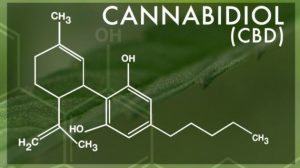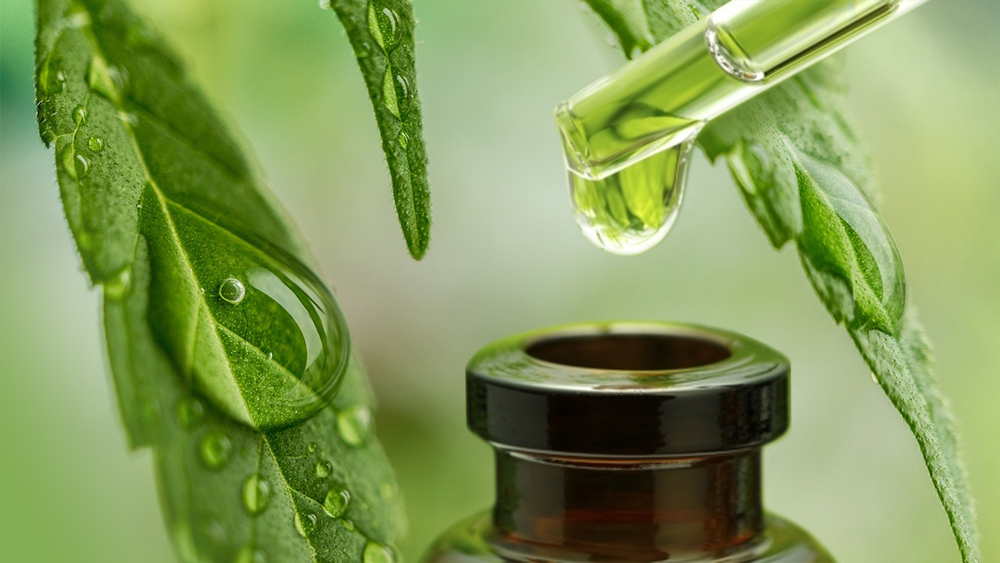Cannabidiol (CBD) is the 2nd most prevalent cannabinoids found in the cannabis plant, and it is emerging as a promising therapy for many illnesses that experts have previously considered to be untreatable, including:
- Pain (neuropathic, chronic, cancer-related, etc.)
- Epilepsy
- Multiple Sclerosis (MS)
- Lateral Sclerosis (ALS)
- Parkinson’s
- Inflammation
- Acne
- Dyskinesia
- Psoriasis
- Broken Bones
- Mad Cow Disease
- Depression
- Bacterial Infections
- Diabetes
- Rheumatoid Arthritis
- Nausea
- Anxiety
- ADHD
- Schizophrenia
- Substance Abuse/Withdrawal
- Heart Disease
- Irritable Bowel Syndrome (IBS)
Keep in mind that this list is not all-inclusive, and we are only beginning to discover how cannabinoids can help and heal.

Although there are many cannabinoids, CBD and tetrahydrocannabinol (THC) are the two people are most familiar with. THC exists in large quantities in cannabis plants – it’s the cannabinoid that’s responsible for most of the psychoactive effects that cause cannabis users to get, and feel, “high.”
Cannabidiol also is found in cannabis plants, but usually at much lower levels, unless the cultivar has been bred for a high CBD content. The primary source of most CBD on the market today is from the agricultural hemp plant. Over 10,000 years ago, hemp was one of the first plants spun into fiber and it is also one of the fastest growing plants in the world.
People often grow hemp for food, clothing, building/plastic composite materials, jewelry, animal bedding, biofuel, weed control, water/soil purification, paper, and more.
How does CBD Exert Medical Benefits?
To date, experts agree there are two types of cannabinoid receptors; cannabinoid receptor type 1 (CB1) and cannabinoid receptor type 2 (CB2).
While THC has a strong binding affinity for both CB1 and CB2, cannabidiol (CBD) has little affinity for either receptor. Instead, CBD exhibits most of its therapeutic benefits through indirect actions, activating non-cannabinoid receptors/ion channels like:
- Fatty Acid Amide Hydrolase (FAAH) Inhibition: This leads to higher levels of endocannabinoids such as anandamide. Endocannabinoids exhibit activity at CB1 and CB2 receptors, providing a myriad of health benefits.
- Antagonizing GPR55 Receptors: GPR55 receptors are widely distributed in the brain (especially the cerebellum) and help control bone density and blood pressure. Additionally, GPR55 promotes cancer cell proliferation when activated. These facts may explain CBD’s therapeutic role in osteoporosis and high blood pressure.
- Activating TRPV1 Receptors: Involved in regulating pain, body temperature, and inflammation) [other substances targeting TRPV1 receptors include anandamide, AM404 (a metabolite of acetaminophen), capsaicin, and various cannabinoids such as CBN, CBG, CBC, THCV, and CBDV.
- Activating the 5-ht1A Receptor (at high doses): The 5-ht1a receptor helps regulate anxiety, addiction, appetite, sleep, pain perception, nausea, and vomiting. CBDA (the raw form of CBD) shows an even higher affinity for this receptor than CBD.
- Activating PPAR-gamma Receptors: PPAR-gamma receptors are located on the cell’s nuclei and play a role in degrading beta-amyloid plaque, as well as lipid uptake, insulin sensitivity, and dopamine release. This action explains why CBD may benefit diabetes, schizophrenia, and Alzheimer’s.

What is the difference between Hemp and Marijuana CBD?
CBD Oil from Hemp:
- Hemp naturally contains a higher CBD to THC ratio than cannabis, with almost negligible (>.3%) amounts of THC.
- It is legal in all 50 states
- Plant grows tall (two to four meters) with minimal flowers
- It is usually grown outdoors
- Although it has a naturally higher CBD to THC ratio than cannabis, overall levels of cannabinoids and terpenes are much lower in hemp.
CBD Oil from Marijuana
- Higher risk of THC content
- More diversity in cannabinoid and terpene profiles
- Plants are small and bushy, with more flowers
- It is usually grown indoors
- It is not legal in all 50 states (may require a prescription)
- Cannabinoid profile supports ‘entourage effect’ more than hemp CBD oil
What is the Entourage Effect?
The entourage effect describes the phenomenon where the 400 plus compounds in cannabis have a synergistic effect on the body.
For example, 100mg of isolated CBD may be substantially less effective at alleviating symptoms than 100mg of a whole-plant, cannabis extract that contains CBD. While it may be cheaper and more cost-effective to extract CBD from industrial hemp, users may ultimately experience less benefit due to the absence of clinically significant levels of terpenes and other compounds which are plentiful in cannabis. While high-CBD cultivars of cannabis do contain much higher levels of various cannabinoids and terpenes, there are risks and side effects associated with its use.
Agricultural hemp is much closer to the way the plant would appear naturally in the wild whereas high-CBD cannabis is hybridized and engineered by growers to produce the highest levels of whatever compounds they deem to be most important. There is a significant argument to be made for using a whole-plant product but you will have to weigh the risks and potential side effects for yourself to decide which is best for you.

Is THC or CBD Best for Pain?
There are a number of factors to consider when trying to determine whether THC or CBD is best for pain relief.
Research suggests CBD may be better for inflammation and neuropathic pain, while THC may be useful for spasticity and cramp-related pain.
CBD is known to reduce the effects of THC, numbing its high. This could mean that combining the two is beneficial in pain management as it will potentially allow a user to go about their day without feeling intoxicated.
What is Clinical Endocannabinoid Deficiency (CECD)?
Clinical Endocannabinoid Deficiency is a condition where an individual has a lower amount of endogenous cannabinoids than experts consider necessary to promote health and well-being.
Scientists now believe CECD may play a role in the following conditions:
- Fibromyalgia
- Irritable Bowel Syndrome (IBS)
- Migraines
- Multiple Sclerosis (MS)
- Post-Traumatic Stress Disorder (PTSD)
- Neuropathy
- Huntington’s
- Parkinson’s
- Motion Sickness
- Autism
The commonly prescribed medications for those ailments often come with a lengthy list of negative side effects.
CBD oil may be a much more effective treatment for these conditions. If CECD is responsible for them, taking CBD could quickly improve the situation while prescription medications could possibly make things worse.
Can CBD Oil Be Addictive?
Lots of people ask us: Can I get addicted to CBD oil? Short answer, no. Long answer, it’s complicated.
Based only on chemistry, the answer is no. Cannabidiol is not physically addictive and does not produce any physical withdrawal symptoms when you stop using it. It is actually worth noting that CBD is currently currently undergoing study for its ability to minimize the brutal withdrawal from drugs like heroin.
While CBD is not chemically or physically addictive, human beings can get addicted to just about anything that isn’t chemically addicting. Exercise, music, sex, and food are just a few examples.
Advice for Patients on How to Use CBD Oil
Before you begin using CBD, it is a good idea to talk to your physician or a cannabis doctor for advice on dosing and potential drug interactions. Once you have decided that CBD is good (and safe!) fit for you, it is imperative to follow instructions and avoid taking more than the recommended serving size.
Raising or lowering your dosage may produce the opposite of the desired effect. Also, taking your medication at the wrong times may lead to unintended increases or decreases in blood concentrations of CBD.
Keep in mind that some people may metabolize cannabidiol differently than others because of anomalies within the cytochrome P-45O (CYP450) enzyme system.
This system, which is responsible for metabolizing cannabidiol, may behave differently in one adult than it does is another. These differences could be because of liver problems, genetics, or an interaction with other drugs taken at the same time.
If you suspect that you are not metabolizing CBD as expected, ask your doctor to test your cytochrome P-450 enzyme system before adjusting your dosage.
Also, you may refer to our page on dosing CBD oil for additional tips and tricks.
